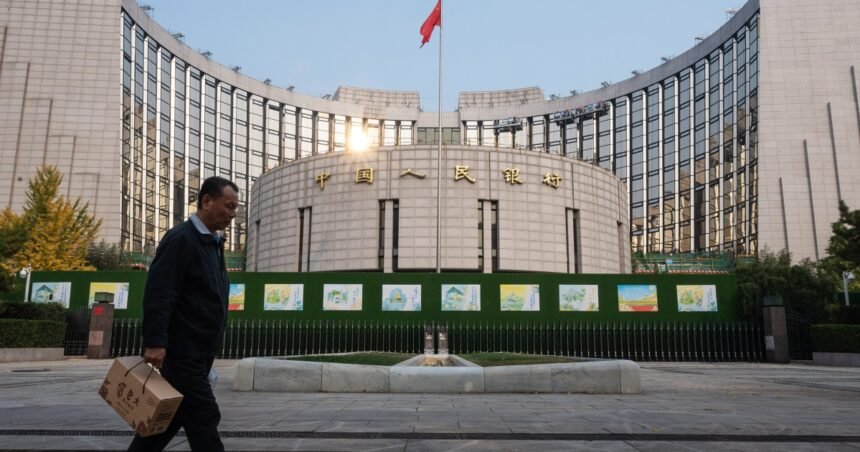BEIJING – China announced on Friday that the central government will allocate an additional 6 trillion yuan ($840 billion) to local governments to resolve hidden debt problems.
Chinese Finance Minister Lan Fo’an told reporters that the plan will take effect this year and will last until the end of 2026. About 2 trillion yuan per year.
Lan added that starting this year, the central government will issue 800 billion yuan in local government special-purpose bonds every year for five years, totaling 4 trillion yuan.
Lan said these policies will reduce implicit debt from 14.3 trillion yuan to 2.3 trillion yuan in 2028.
Beijing is widely expected to roll out more stimulus measures after the National People’s Congress wraps up its five-day session.
Since late September, authorities have stepped up stimulus efforts, driving stocks higher. On September 26, President Xi Jinping presided over a meeting and called for strengthening fiscal and monetary support to curb the downturn in the real estate market.
While the People’s Bank of China has cut interest rates several times, significant increases in government debt and spending require approval from the National People’s Congress.
The approval is expected to come at the Legislature’s weeklong standing committee meeting that ends Friday. At a similar meeting last October, authorities gave a rare approval to increase China’s deficit from 3% to 3.8%, according to state media reports.
Analysts expect fiscal support to increase after Donald Trump, who has threatened tough tariffs on Chinese goods, wins the U.S. presidential election this week. But some remain cautious, warning Beijing may remain conservative and not provide direct support to consumers.
When discussing the fiscal support package at a press conference last month, Lan stressed the need to address local government debt.
At the parliamentary meeting, officials reviewed a plan to increase local government debt limits, state media reported. The additional quota will be used to replace the implicit debt of local governments.
Nomura estimates China has 50 trillion yuan to 60 trillion yuan ($7 trillion to $8.4 trillion) of such hidden debt, and said it expects Beijing may allow local authorities to increase debt issuance by 10 trillion yuan in the coming years.
Nomura Securities said this could save local governments 300 billion yuan in annual interest payments.
In recent years, the downturn in China’s real estate market has severely limited an important source of revenue for local governments. Regional authorities will also have to invest in Covid-19 control during the pandemic.
A report from the International Monetary Fund shows that before this, China’s local government debt had grown to 22% of GDP by the end of 2019, far exceeding the growth in revenue available to repay debt.

